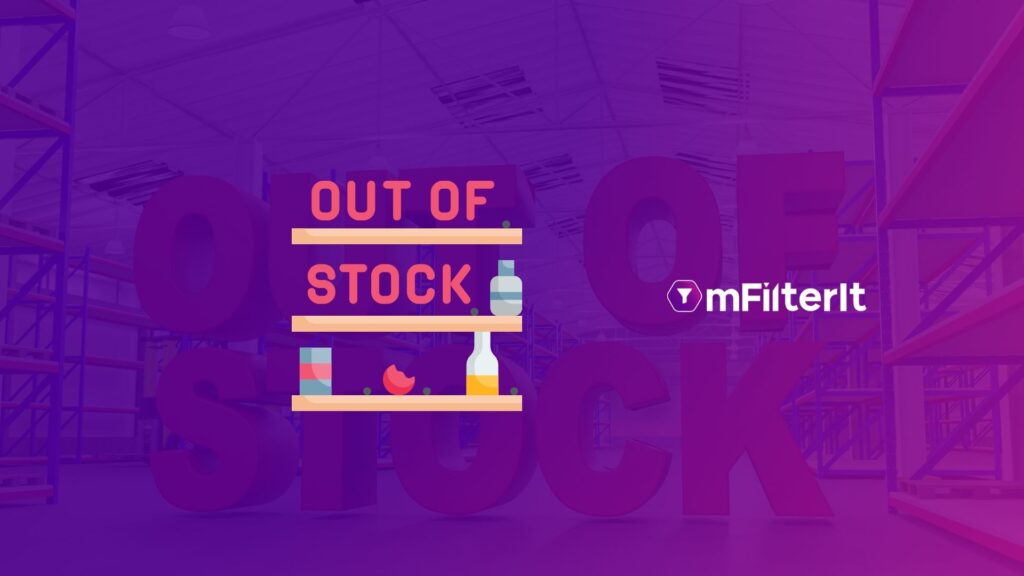Online shopping has experienced a significant boom with the increased number of web users in the last two years due to COVID-19. Finding the desired product and discovering new ones have also contributed to the increased conversions on eCom platforms. The new peaked velocity of transactions has made managing out-of-stocks challenging for brands.
Stockouts mean the product is no longer available on the eCom platform and has multifold brand implications, not just limited to purchases/transactions.
Out-of-stock leads to switching to another brand, checkouts on another platform, finding an alternative solution, diminished customer base, and more.
Loyal customers may no longer stay associated with the brand if they can’t buy its products and might share their grief in reviews. Experiencing it during lightning deals can increase the chances of such negative feedback.
Some eCom platforms may offer better product rankings to listings with higher sales/conversion. The ongoing and occasional sales, competitor offers, and availability of similar products on the eCom platform makes managing out-of-stock an essential factor for businesses.
Reasons and Implications of Out-of-Stock
The factors for product unavailability on the eCom platform can get segregated into mismanaged inventories, wrong product demand forecasts, supplier-side issues, etc. Whatever the reason, the customer becomes dissatisfied with the brand/seller and even more challenging to re-acquire, assuming all the problems get resolved, which is an impossible scenario.
Our eCommerce Intelligence Solution reviewed the change in the brand for grocery products and found that the switch is almost immediate. Customers don’t wait to buy “atta” until it arrives at the specific store and is available through the particular seller. Instead, they find alternatives for purchasing the product.
Our research states that customers who want to stay loyal to a brand or buy a specific product would go to lengths to switch apps or websites that are readily available and make transactions. Stockouts can also diminish the product demand, which directly decreases SKUs and even causes delayed purchases, as the brand continuously faces issues increasing the customer base.
Furthermore, the brand would have to boost the advertising budget to achieve the previous customer base and cultivate marketing spending to increase the loyalty base. Fortunately, managing stockouts is possible for brands through eCom Competitive Analytics powered by mFilterIt.
mScanIt Helps Brands to Manage Stockouts
Our solution analyzes the stockout of your brand and your competitors. It offers a clear picture of the brand ranking. Reviewing these results offers numerous other benefits. For example, brands can identify and alert the responsible teams when the stock status changes. The solution also scans average availability demand across city, pin code, brand, sub-brand, variant, etc.
Figuring availability and unavailability can offer many more advantages. For example, the brand can review the best platform for a particular product. Similarly, the brand can check the demand percentage of a single product across eCom stores. Moreover, a competitive analysis can give the scope of demand for such products on different eCom platforms and change SKUs.
Additionally, the brand can discover the hero product that meets the availability criteria across eCom marketplaces. mScanIt offers daily, weekly, and monthly to manage availability across prominent eCom platforms like Amazon, Big Basket, Flipkart, BlinkIt, etc.
Managing out-of-stock can help brands understand the regions or warehouses with the highest/lowest availability problems and work on solutions to resolve them. By managing and diminishing stockouts, brands can increase customer satisfaction, sales, seller engagements, and market visibility.
Takeaway
No customer likes to read “The product is currently unavailable,” and keeping the customer satisfied is a brand priority. Out-of-stock causes severe damages to a brand and leads to a higher cost of recovering from them.
Therefore, using an availability tracker like mScanIt can benefit a brand. The solution also analyzes competitor performance and offers a complete picture of the brand’s product rankings across stores.
Such a solution offers multifold advantages to a brand on a single dashboard, making it easier to review and make decisions. Moreover, brands can make retail execution easier with a comprehensive solution scanning the web marketplaces and delivering customized reports.



